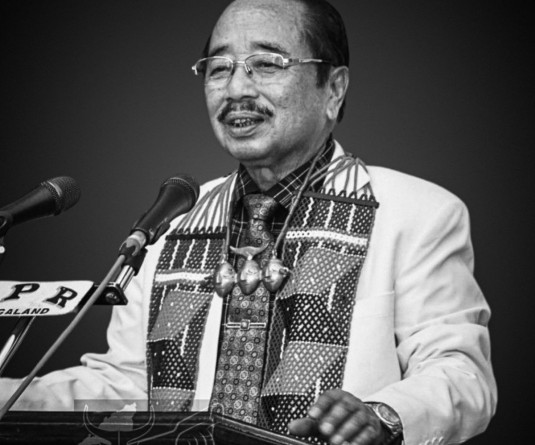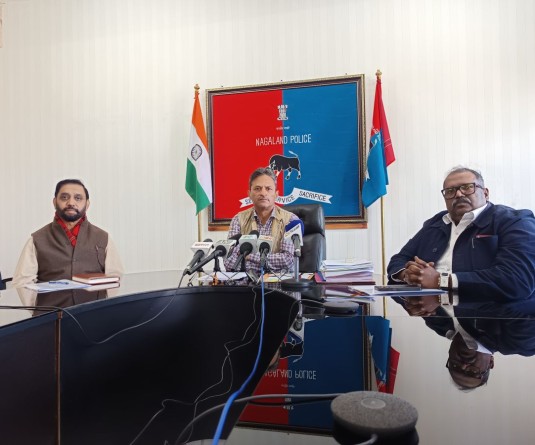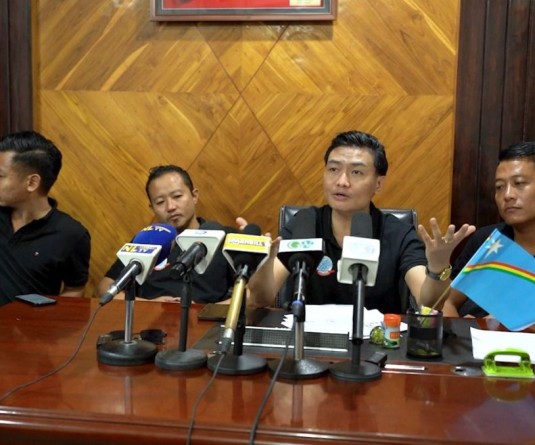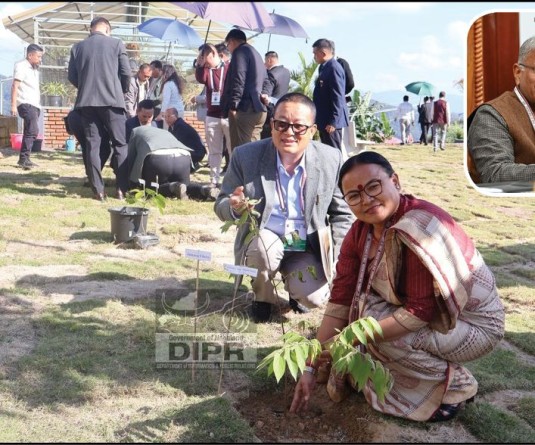‘Bridging the Farm-to-Plate-Gap’: NEN Farm School concludes
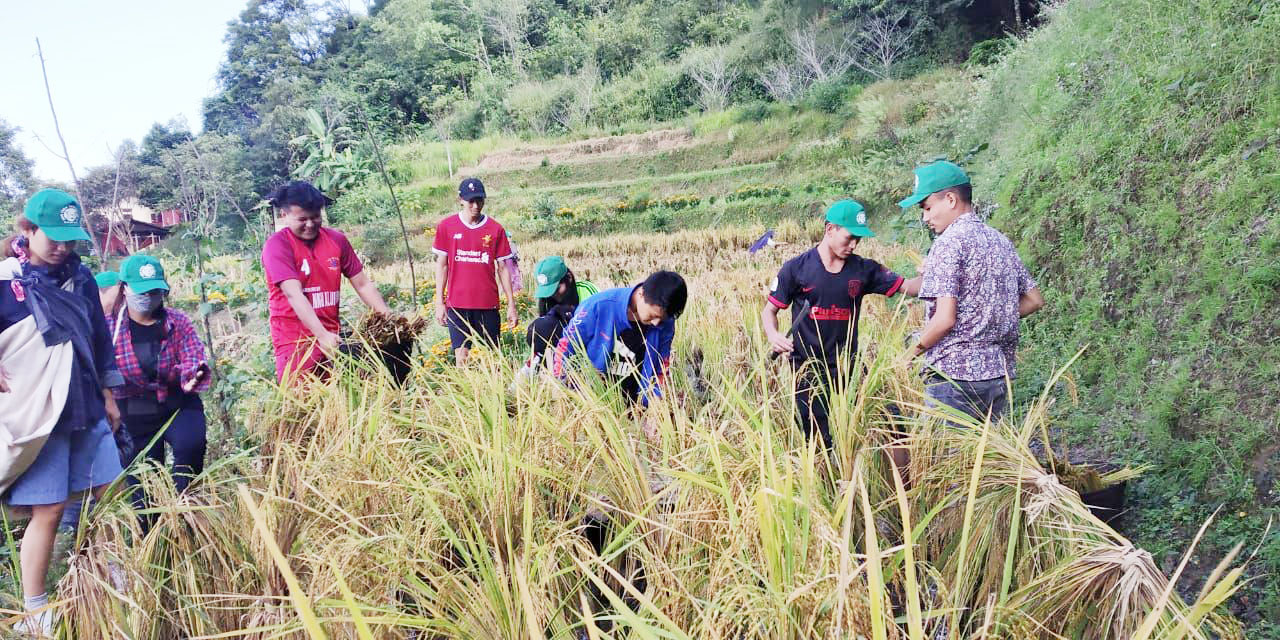
Students harvesting paddy during the 5th NEN Farm School which was held in Chizami from October 25 to 28.
DIMAPUR, OCTOBER 29 (MExN): The 5th edition of the NEN Farm School 2019 was held from October 25 to 28 at Chizami.
Held under the theme ‘Bridging the Farm-to-Plate-Gap’, 20 students from four institutions participated in the four days residential programme. The farm school aims at reconnecting youth to local food and farming systems through an experiential learning process.
Students were exposed to topics such as understanding the natural world and food web, biodiversity, pollinators, seed systems, and soil management. Interactive sessions with custodian farmers and traditional knowledge holders, hands-on experience with bee-keeping, paddy harvesting, moth watching, storytelling, biodiversity walks, Seed Bank visit, setting vermin-compost unit etc are some of the highlights of the 4-day NEN Farm School.
Resource Persons were Bee-Keeper, Kekhrowe Tsido from Enhulumi village; Dr. Esther T. Longkumer, ACTO, Soil Science, ICAR-KVK Phek; community knowledge holders from Chizami Zulhipe Chirhah, Wenyilo Naro, Dikhwetsou Wezah, Kediu Mekrisuh, Keneile Thopi, Ebamhethokro, and NEN staff.
At the valedictory programme on October 28, which also coincided with the 14th anniversary of the NEN Resource Centre, Chizami, Vekuto Vero, SDO (Civil) Chizami exhorted the students to take back the learning with them and share the knowledge gained with as many people as possible. He noted that an initiative like the NEN farm School shows the path towards self-reliance, which is urgently needed for a State like Nagaland that has been increasingly depending on outside states for food supplies.
Meanwhile Wetshete Thopi, Assistant Professor at the Patkai Christian College, Dimapur also addressed the gathering of students, NEN staff, community leaders, church elders, and representatives from different departments. He reminded that indigenous peoples constitute just 5% of the world’s population but 80% of the world’s biodiversity is in their lands.
However, this biodiversity is under threat because of people’s greed that is leading to its destruction. He pointed that modern development is not sustainable anymore and traditional knowledge and practices hold the key to protecting the biodiversity. He urged the students to take responsibility for protecting our lands, ecosystems and environment.


